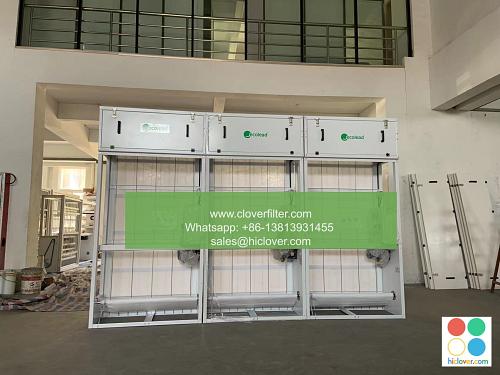The Role of Air Filters in Reducing Smoke

Air filters play a crucial role in reducing smoke and improving indoor air quality (IAQ) in various settings, including residential, commercial, and industrial spaces. In this article, we will discuss the significance of air filters in minimizing smoke exposure, their working mechanism, and their applications in different fields.
How Air Filters Work to Reduce Smoke
Air filters are designed to capture airborne particles, including smoke, dust, and other pollutants, using various filtration technologies such as HEPA (High Efficiency Particulate Air), activated carbon, and electrostatic precipitation. These filters can be integrated into HVAC (Heating, Ventilation, and Air Conditioning) systems, air purifiers, and ventilation systems to remove smoke and other contaminants from the air.
Application Areas of Air Filters in Reducing Smoke
Air filters have numerous applications in reducing smoke in various industries and settings, including:
* Cigarette smoke removal in hotels, restaurants, and bars
* Wildfire smoke mitigation in residential and commercial areas
* Industrial smoke control in manufacturing facilities and warehouses
* Vehicle exhaust smoke reduction in garages and parking facilities
* Medical facility smoke removal in hospitals and clinics
Benefits of Using Air Filters to Reduce Smoke
The use of air filters to reduce smoke offers several benefits, including:
* Improved indoor air quality and reduced exposure to airborne pollutants
* Enhanced respiratory health and reduced risk of respiratory problems
* Increased energy efficiency and reduced energy costs
* Extended equipment lifespan and reduced maintenance costs
* Compliance with air quality regulations and standards
Types of Air Filters Used to Reduce Smoke
There are several types of air filters that can be used to reduce smoke, including:
* Particle filters, which capture particles as small as 0.3 microns
* Activated carbon filters, which absorb gases and odors
* Electrostatic filters, which use static electricity to attract and capture particles
* UV (Ultraviolet) filters, which use ultraviolet light to kill bacteria and other microorganisms
Conclusion
In conclusion, air filters play a vital role in reducing smoke and improving indoor air quality in various settings. By understanding the working mechanism and applications of air filters, individuals and organizations can make informed decisions about the use of air filters to minimize smoke exposure and create healthier environments. Whether it’s cigarette smoke removal, wildfire smoke mitigation, or industrial smoke control, air filters are an essential tool in the fight against air pollution and poor indoor air quality. It seems like you’re looking for a prompt to get started with something, but you haven’t specified what that something is. Could you provide more details or clarify what kind of prompt you’re looking for (e.g., writing, art, conversation)? That way, I can give you a more tailored and helpful response.

